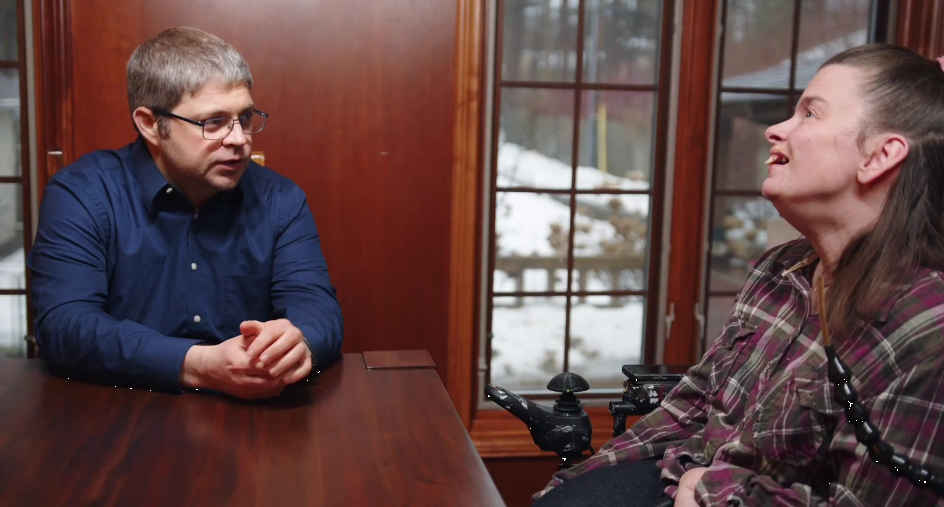Preliminary settlement reached in disability rights class action lawsuit

FOR IMMEDIATE RELEASE (Minneapolis, MN) — After nearly six years of litigation, the Minnesota Disability Law Center, a division of Mid-Minnesota Legal Aid (“Legal Aid”), is pleased to announce that Senior United States District Court Judge Donovan Frank of the District of Minnesota has granted preliminary approval of a settlement agreement in the federal class action lawsuit, Murphy et al. v. Harpstead, 16-cv-2623 (DWF/BRT).
Plaintiffs who filed the lawsuit are people with disabilities who live in group homes and asked to move into homes or apartments of their own but did not get the help they needed to make the move happen. The lawsuit claimed that the disability programs run by the Minnesota Department of Human Services (“DHS”) over rely on 4-person group homes to serve people with disabilities in violation of the U.S. Supreme Court decision, Olmstead v. L.C. Under the Olmstead decision, people with disabilities have a civil right to be full members of their communities and live in the most integrated community setting appropriate to their needs. Legal Aid, who represented the Plaintiffs in the class action, estimates that the settlement of this case will positively affect more than 1,000 Minnesotans with disabilities.
The settlement agreement requires DHS to take a variety of specific steps to improve access and opportunities for people with disabilities who want to live in their own homes or apartments. An important part of the agreement is that DHS has to identify all the people with disabilities living in group homes who said they wanted to look into more individualized housing options. DHS will also give each of these individuals information about accessing housing transition services, known as “Housing Stabilization Services.” DHS will track the people they identified and make sure they get support from their case managers and get access to Housing Stabilization Services.
DHS will also:
•Require housing-related trainings for all case managers.
•Collect and publish data to measure if people living in group homes are successfully moving into their new homes.
•Make sure that anyone who wants to appeal a denial of Housing Stabilization Services
knows how to do it.
Justin Perl, lead attorney on the case for Legal Aid, notes that, “This settlement will ensure a greater opportunity for all class members to live in homes they can call their own, no longer stuck in settings with utter strangers, and provide a more innovative choice to live in the most integrated setting appropriate to their needs, as the U.S. Supreme Court required as far back as 1999.” Dionne Swanson, a named Plaintiff in the case, said, “I am very happy with the result. I
hope this case will help other people like myself with getting the services they need to move ifthey want.”
The settlement provides Legal Aid $1.138 million dollars for attorneys’ fees and costs. This money lets Legal Aid continue its mission of advancing the rights of Minnesotans with disabilities and improving the lives of the most vulnerable members of our community. Legal Aid worked on this case along with partners from Anthony Ostlund Louwagie Dressen & Boylan P.A. and Nichols Kaster PLLP. These valued partners fought hard for the rights of people with disabilities in Minnesota throughout this case.
Legal Aid encourages all people with disabilities who are receiving services in a group home and who would like to move into a more individualized setting to continue to communicate this goal to case managers and in the yearly MnCHOICES assessment. If you are a person with a disability who receives a denial of Housing Stabilization Services and would like to appeal the denial, you can call the Minnesota Disability Law Center intake line at 612-334-5970.
Contact:
Justin Perl
Litigation Director
Mid-Minnesota Legal Aid
612-746-3727 | jperl@mylegalaid.org

